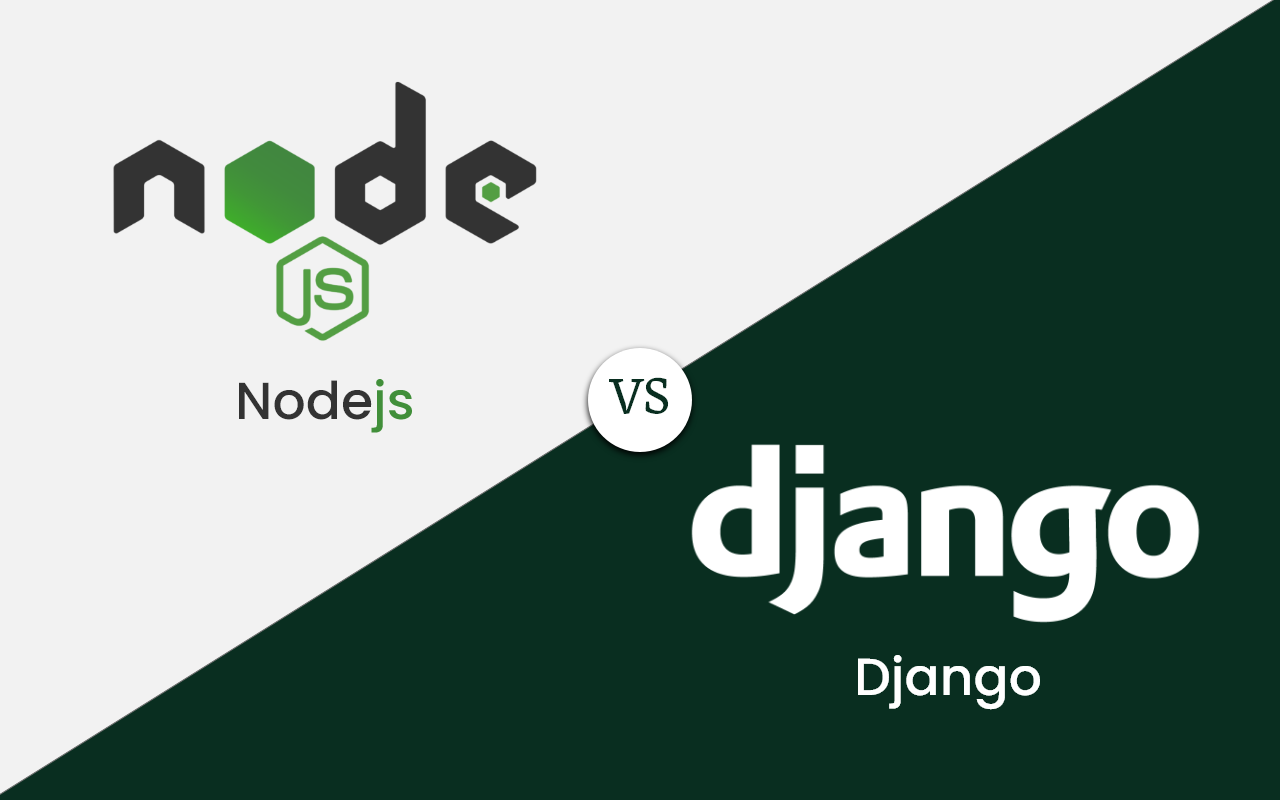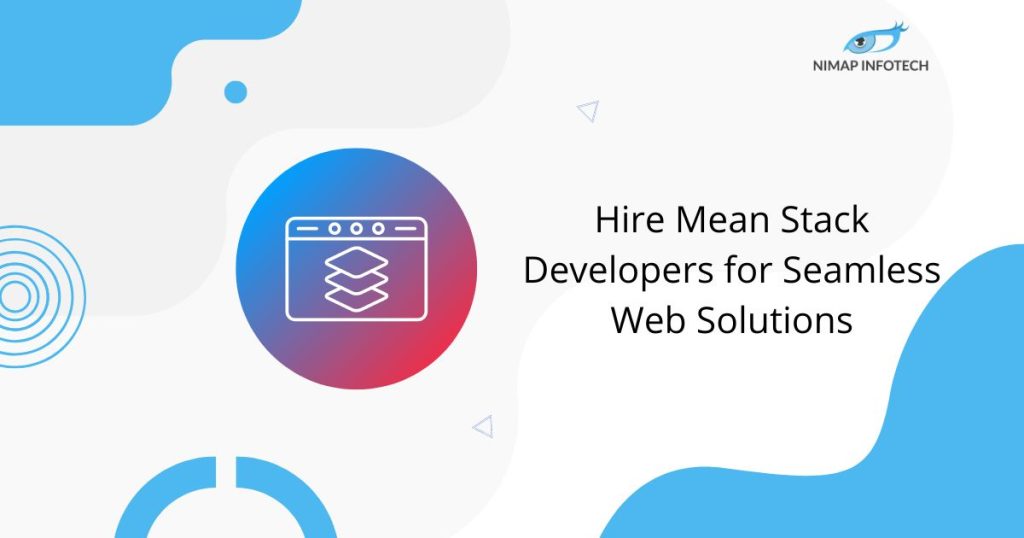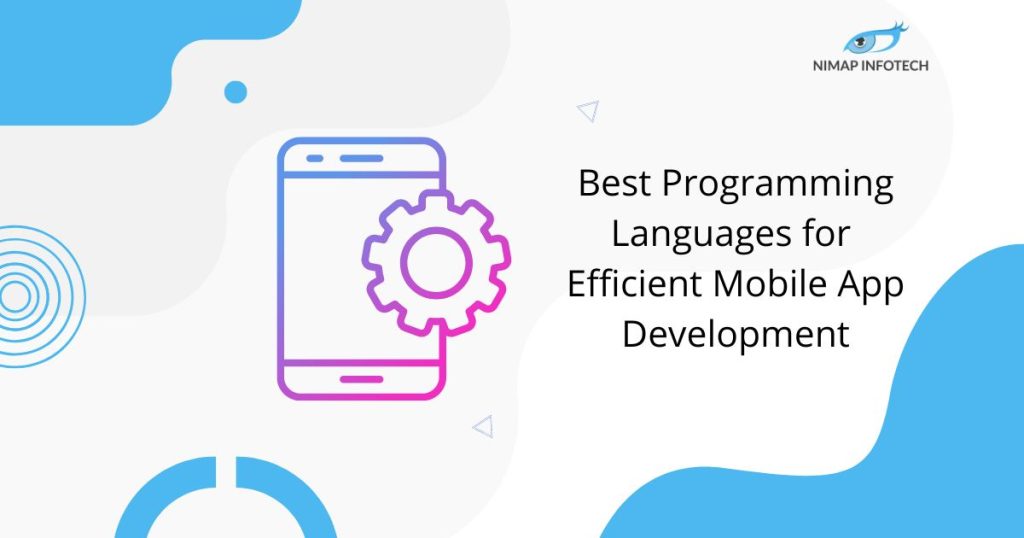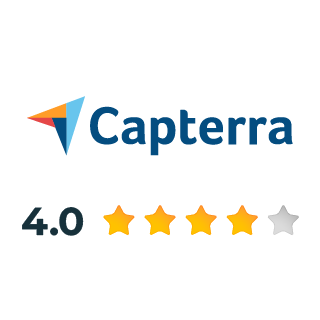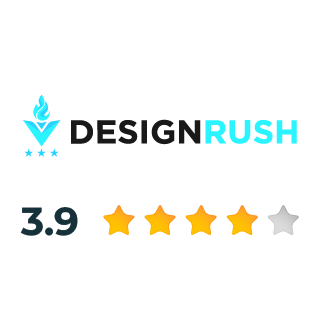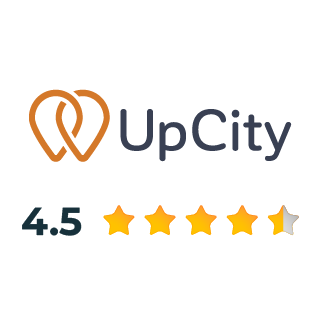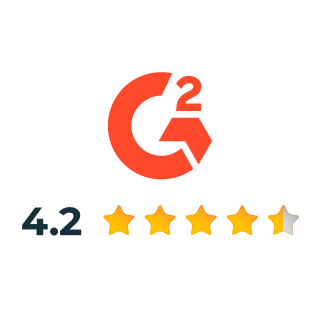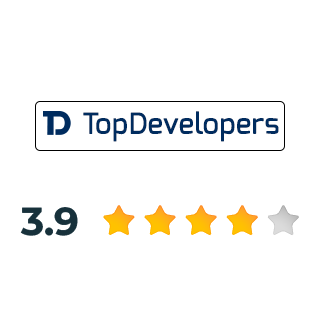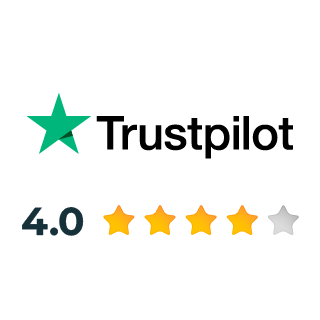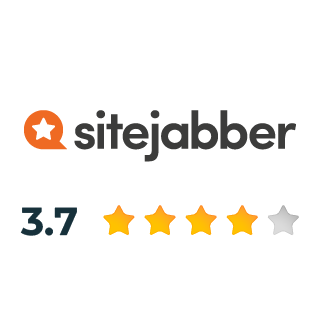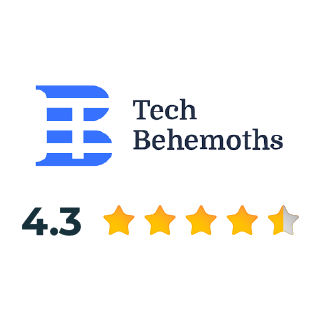Overview
NodeJS vs Django
Both Node.js and Django are robust and intuitive technologies for versatile web and mobile app development with exceptional user interfaces. Both are open to all, make use of open-source technologies and come for free without any license required. Secondly, numerous significant and pivotal projects utilize them, and they boast substantial web communities.
Node.js employs JavaScript for client-side web development, whereas Django uses Python for data analysis and real-time app development within deadlines.
The choice between popular and versatile technologies for a project depends on the specific requirements of the project. There are many ways for an app to run on different technologies. Choosing an application solely depends on the requirements and what you want to achieve with that particular app.
Django vs Nodejs
| Characteristic | Django | Node JS |
| Definition | Django is an open-source Python-based framework that is developed for expert developers and programmers whose aim is to build computer applications in a stipulated time frame. | Node.js, an open-source framework, operates on JavaScript and targets developers and programmers aiming to construct robust client-side APIs. |
| Architecture | It follows the MTV model template view and provides help with data handling that is used for validating and interacting. | The runtime environment uses an event-driven model to execute on an operating system, maintaining a small stack of requests. |
| Security | Django is highly insecure as it provides different features to prevent intrusion and comes with a built-in system, preventing any security deficiency. | NodeJS lacks the same level of security features as Django and necessitates manual system operations to manage security flaws. |
| Performance | It offers better performance compared directly to NodeJS, as there is a built-in house template system facilitating the execution and running of a required task quickly. | NodeJS offers excellent performance, allowing web professionals and developers greater flexibility in implementations. But again, this increases the overall development time required to build the application. |
| Complexity | Django is more complex, as a developer and programmer has to follow a specified path for solving real-time problems. | This system is less complicated and is easy to apprehend. Here, the developer and programmer have a free hand to solve the problems as they like. |
| Efficiency | This framework is more efficient and offers superior or fast speed. And so, it is more cost-effective and budget-friendly. | This framework is easy to learn and is beginner-friendly, but consumes more operating time, or execution time. Thus, it is a less cost-effective option and is not as budget-friendly as Django. |
| Reputation | Django has a more solid reputation and is recognised easily. | NodeJS is gaining global popularity and may soon become the preferred framework due to its excellent scaling capabilities. |
| Community | Django has a reasonably active yet small community compared to NodeJS. | Node.js has a more active community compared to Django, offering experienced assistance for updates and customization. |
| Full-stack development opportunities | Django does not offer or provide features of full-stack development. | NodeJS is a popular web app development technology due to its ability to create both frontend and backend parts using JavaScript. |
| Flexibility | This framework offers limited flexibility and is quite strict with development features. | Pros of Node.js include its rich set of tools and features, enabling the development of JavaScript-based applications from scratch. |
- Speedy and fast-paced web and app developments
- Better performance level by using in-built templates and modules
Cons
- Allows building only single-tiered applications
- Doesn’t work well as well as scale well with small apps
- It demands a deeper comprehension of the framework due to its complexity.
Also Read: Django vs Laravel vs NodeJS: Comparison
Pros and Cons of NodeJS
Pros
- Very active and huge community user base
- More libraries and modules available worldwide
- Easier system to follow along with less complicated features
- Developers and programmers have an open hand and freedom to execute commands
Cons
- Non-synchronous programming makes it difficult for the programmers and developers
- Doesn’t work great with intensive and responsive applications, owing to the single-thread system.
- Less cost-effective, as it takes more time to develop applications, takes more budget
- Less secure and has security flaws compared to the Django
- Low performance
- Less development and creation speed
Which Should You Choose?
Firstly, In this article on NodeJS vs Django. Django is more useful in portraying as well as making and using the features to fulfil the required tasks.
Once you know the requirement, as a developer you can build real-time applications in NodeJS. Django ensures secure operations, including password resets, and helps developers build fast and feature-rich web applications.
Conclusion
Developers and business owners should choose between Node.js and Django based on their specific requirements, as both technologies are continuously evolving.
There’s no definitive answer to “Django vs. Node.js” as it hinges on features and personal preferences.
You cannot employ a rule-of-thumb approach to determine which technology to use for web and mobile app development. Each app has a specific requirement, and every developer and programmer has their own preferences. Some may prefer Django, while others may prefer and use it towards NodeJS.
There are numerous programming methods to generate a Fibonacci sequence, similar to the various methods for building an app. Do not blindly follow a developer or programmer and his or her beliefs. As their workflow may differ from your requirements. To meet your specific app development requirements, it’s vital to carefully assess and align the characteristics of the required technologies.
Read More: PHP with Laravel or Python with Django, which is best for web development?
Hope you like this blog on Django vs Nodejs. If you are looking to develop a web application you can hire nodejs developer and hire Django developer then mail us at enquiry@nimapinfotech.com
